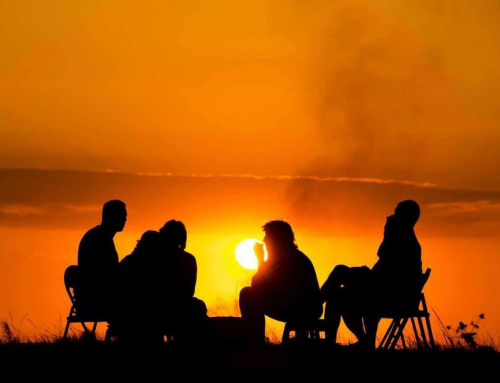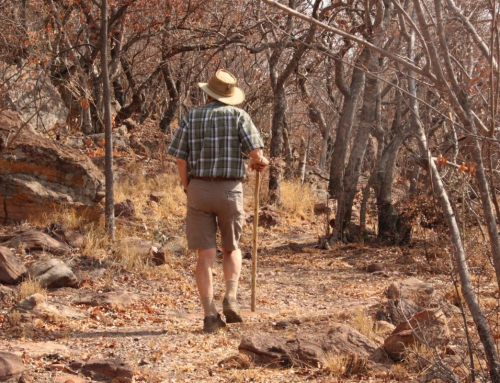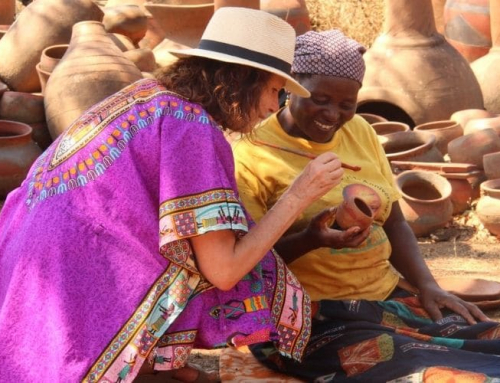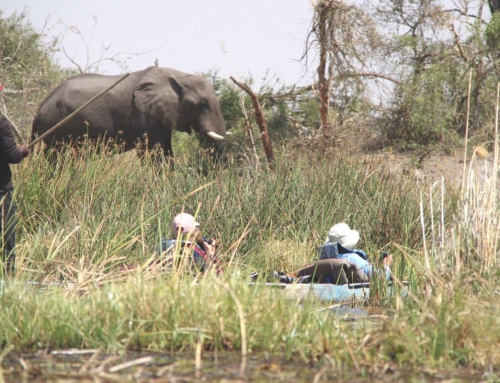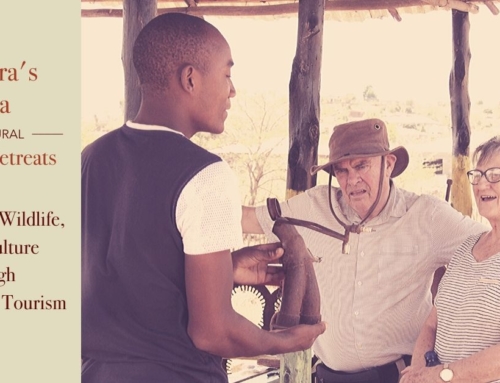I mentioned in an earlier blog that ‘sustainability’, is our key driver, or more specifically, ‘Sustainable Tourism’, or ‘Responsible Tourism’ to use terms that are more commonly used in the tourism industry.
But what does that mean – and why should we or anyone else care? In this blog – we will be digging a little deeper, exploring the concept as it applies in our own tourism context.

What is Sustainability?
Lets start with a few definitions.
Drawing on American Sign Language (ASL) as Susan Fowler does (Sitarz 2008) – sustainability might be thought of most simply as the combination of the two signs “life” and “forever” as opposed to extinction which in ASL is “death” and “forever”.
Margaret Robertson (2017) in her engaging and well crafted book entitled “Sustainability Principles and Practice” explains the meaning of the word ‘sustainability’ as: “enduring into the long term future” adding that the word describes “systems and processes that are able to operate and persist on their own over long periods of time” without failing. Robertson adds that much sustainable work focuses on the concept of resilience, where resilience is understood to be a thing, or a system that “adapts to changes without losing its essential qualities. ….. they are self organising and feature diversity, redundancy, and connectivity.”
So to be sustainable means to endure and to retain the essential qualities – even where there is change.

What is Sustainable Development?
The term ‘Sustainable Development’ was introduced and popularised in the 1980s in a report entitled “Our Common Future” written by the World Commission on Environment and Development (WCED 1987). In the report ‘sustainable development’ was defined as “development that meets the needs of the present without compromising the ability of future generations to meet their own needs”. “Sustainable development recognises the rights of all people, including future generations, to grow and flourish.” Robertson (2017).
Robertson explores this further explaining how ‘sustainable development’ is development that considers the three interrelated dimensions of: ecology (environment), economy and social development (social equity), adding that these three sustainability pillars: environment, economics and equity – are sometimes referred to as the “three E’s” or in business vernacular the “triple bottom line” – a term introduced, according to Robertson, by the corporate responsibility expert ‘John Elkington’.
Although ‘sustainability’ and ‘sustainable development’ are now corporate buzzwords, these concepts and concerns relating to these concepts, according to Robertson, have been emerging over the last 200 years. It was scholars such as Thomas Malthus (1798), Henry David Thoreau (mid 1800s), Svante Arrhenius (1908) that first called attention to the issues and consequences of overpopulation and overexploitation of natural resources. Awareness of and interest in this topic grew gradually during the 1900s to the present day, to the internationally highly debated and discussed topic that sustainability has become – in the light of ongoing global problems such as: poverty, water scarcity, mass extinctions, famine, declining energy sources, climate change, pollution and the loss of natural ecosystems.
Robertson describes a ‘sustainability approach’ as one that “identifies long term goals, examines strategies for achieving those goals and systematically evaluates using indicators.
So how does all of this apply to Tourism?

Applying this to Tourism
The focus on economy, environment and social equity are carried through in the application of sustainability to tourism. This is succinctly captured the quote by Manente et. al. (2014) below who describe Responsible Tourism as:
“Promoting growth that respects culture and environment and supports the well-being of local communities is a crucial issue for the evolution of modern tourism”. This is especially relevant as tourist numbers continue to increase, tourism becomes more affordable for many and air travel becomes more accessible.
Why Care?
Given that tourism growth is desirable for the economy of many countries and local communities particularly in the ‘off the beaten track’ areas that we (Alexandra’s Africa) operate – there is a balance to be found to ensure that people’s livelihoods, their well-being and the environments we operate in i.e. all the things that makes these areas so special and unique that we treasure as tourists and as operators – are preserved, respected and enjoyed – as we described above, not just for this generation – but for many generations to come i.e. ‘forever’. So rightly, there is pressure, from consumers, industry and government, for tour operators like Alexandra’s Africa, to operate sustainably i.e. to think about ‘the three E’s’ in all that we do.
What Can Individuals Do?
As I mentioned in my introduction, the phrases ‘Sustainable Tourism’, ‘Responsible Tourism’ or ‘Responsible Travel’ are used interchangeably and are frequently to be found in travel literature. So what do these terms mean in a more tangible tourism context i.e. what can we as individuals do, and what are we at Alexandra’s Africa doing given our own interest in doing as much as we can in this regard.
Veronica Morrison (2017) in a blog entitled ‘What is Responsible Travel’ writes about the importance of tourism to many economies and outlines how responsible travel does not mean for example – not travelling, as this could be as damaging to some economies as over-tourism. It also doesn’t mean you have to shower with a bucket and cold water! Whilst that might make for a uniquely adventurous trip, as Morrison points out, luxury travel and responsible travel are not necessarily mutually exclusive.
Morrison also outlines what in her opinion it does mean and she describes a responsible traveller as someone who:
- Immerses themselves in the places they visit
- Is socially and culturally aware, appreciative and respectful
- Supports local communities
- Engage with locals
- Ensures that the tour operator has a sustainability program and/or demonstrates ethics and principles that are socially, economically and ecologically sound.
We think the above is as good a list of guidelines as any other we have seen, and it provides some useful practical suggestions.
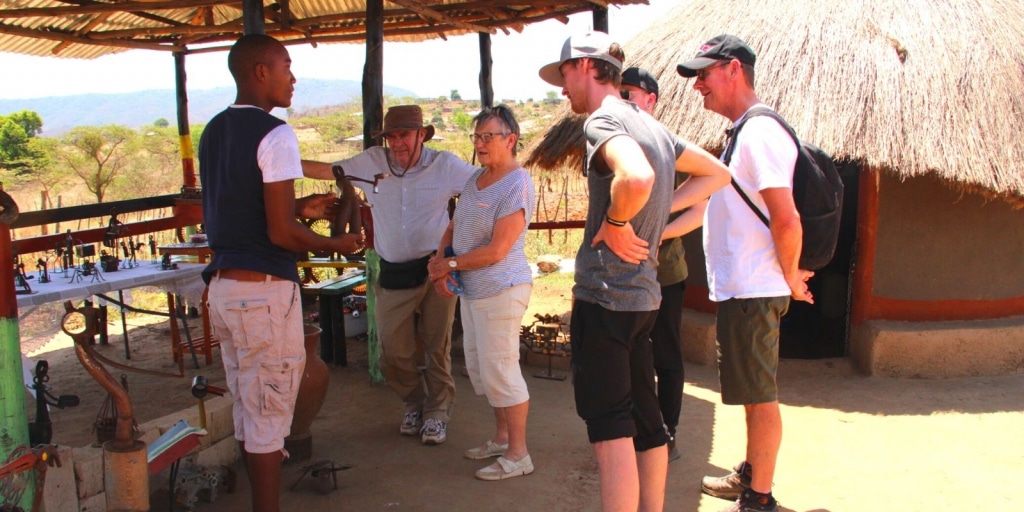
What are we doing about this at Alexandra’s Africa?
We are a small company and as such do not have the financial clout of some of the larger companies (our colleagues) in the industry. But we believe:
- That every little bit helps – every local artist and supplier we support, every piece of litter we collect, every contribution we are able to make to our partner charity ‘Ubambiswano’ – it all helps;
- That sustainable tourism won’t be achieved by a heavy handed top down approach through regulation or policy – but rather by lots and lots of ‘not for profit’ operators like ourselves across the industry, doing all we can to help. This will create over time a ground swell of change that we feel is already happening;
- Our outside-in (community first) business model, rather than a more traditional inside-out (company first) model, is one that reflects our values and in the longer term will be sustainable for us and the communities in our areas of operation;
- By making our own guests aware of our own sustainability criteria/actions – we might and should be judged. These are:
- Keeping ground travel to a minimum
- Working with small/local suppliers
- Paying our suppliers a fair price
- Supporting local female founders
- Supporting local artists – buying direct
- Contributing to local educational charities
We have short, medium and long term strategies, not only for ensuring we continue to offer our guests a uniquely enjoyable, immersive eco-cultural safari experience, but also for finding ways to support the communities within which we operate.
At the start of this blog, I wrote that ‘sustainability’ is a key driver for us. On reflection it is our desire to help and to make a difference that is our key driver. However as responsible operators, sustainability and sustainable practices are at the heart of what we do at Alexandra’s Africa.
In our next blog we will be telling you a little more about the story behind our partner charity Ubambiswano and how we are trying to make a difference.

References:
Manente, M., Minghetti, V., Mingotto, E. (2014) Responsible Tourism and CSR: Assessment Systems for Sustainable Development of SMEs in Tourism, London: Springer.
Morrison, V. (2017) “What is responsible Travel”, Travel Tourism News, website: Traveltourism.news/what-is-responsible-travel/ Accessed: 31/12/2017.
Robertson, M. (2017) Sustainability Principles and Practice, Second edition. New York: Routledge.
Sitarz, D. (2008) Greening Your Business. The Hands on Guide to Creating a Succesful and Sustainable Business. Carbondale, IL: Earthpress.
Alexandra’s Africa is a Hampshire, UK Based, independent, niche Safari Company, offering a range of sustainable, hosted eco-cultural safaris in Southern Africa.
Tel: 02382 354488
E: info@alexandrasafrica.com


